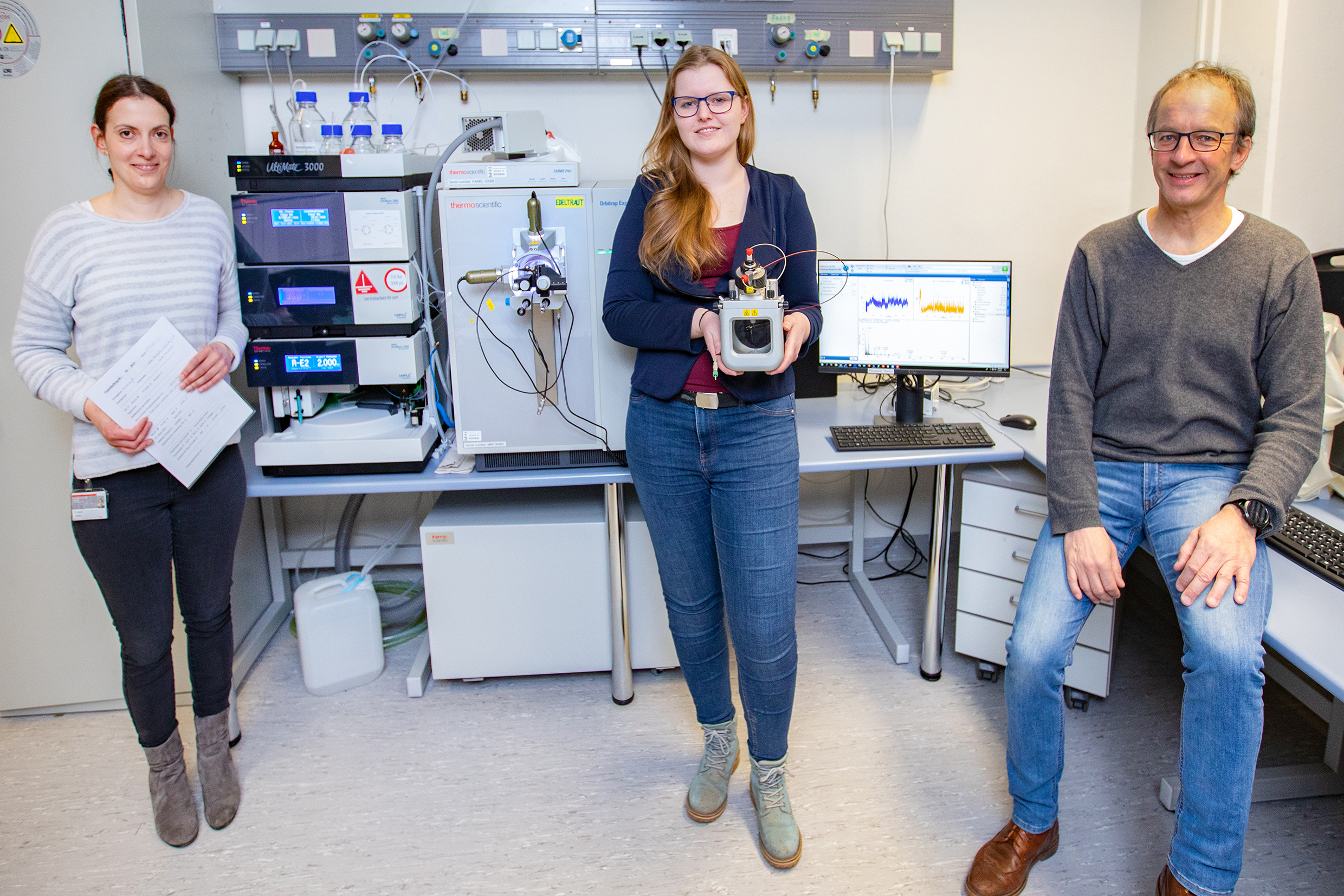A new mass spectrometer – funded by RESIST and the MHH – speeds up research

Dr. Jasmin Zischke (left) uses the proteomics laboratory led by Professor Pich (right) for her research. PhD student Theresa Schweitzer (centre) shows an attachment of the new mass spectrometer.
Status: 26. March 2021
"It's a real workhorse: fast and solid". This is how Professor Dr. Andreas Pich describes the new mass spectrometer of the MHH research facility Proteomics: "We can now investigate the cell protein processes much more quickly. This new device is the fifth mass spectrometer in the lab, it can analyse samples about three times as fast as older models and it ideally complements the lab's equipment," explains the Proteomics director. Another advantage: more measuring times are now available for the other mass spectrometers in the research facility, which can also be used for more specialised analyses.
The "Exploris240 Quadrupole-Orbitrap-Hybrid", which costs around half a million euros, and its additional equipment were financed by the Cluster of Excellence RESIST (www.resist-cluster.de) and the MHH. The procurement was possible at very short notice: in September 2020, it was applied for at the RESIST Board, in December it was already on site and since February 2021 it has been in use. Since then, scientists have been able to use it to find out which proteins the cell extracts contain, and how they interact with other substances.
Wanted: Agents against herpes viruses
This is how Dr. Jasmin Zischke, for example, uses mass spectrometry. The postdoctoral researcher from the Institute of Virology is looking for new substances that are effective against the carcinogenic Kaposi Sarcoma Herpesvirus (KSHV). For this purpose, she "hooks" various very small substances – which could possibly work against the viruses – and uses them to "fish" in an extract from KSHV-infected cells for proteins that interact with these substances. These proteins are identified with the help of the mass spectrometer. "I am particularly interested in the mechanisms underlying the interactions between the low-molecular substances and the cell proteins," she explains.
The proteomics research facility is part of the MHH Institute of Toxicology. All MHH working groups and research association partners of the MHH can use the facility. In case of interest to use the facility, other academic organisations and companies can contact Professor Pich.
Contact:
Professor Dr. Andreas Pich
pich.andreas@mh-hannover.de